Pavement parking 'free for all' on Belfast street
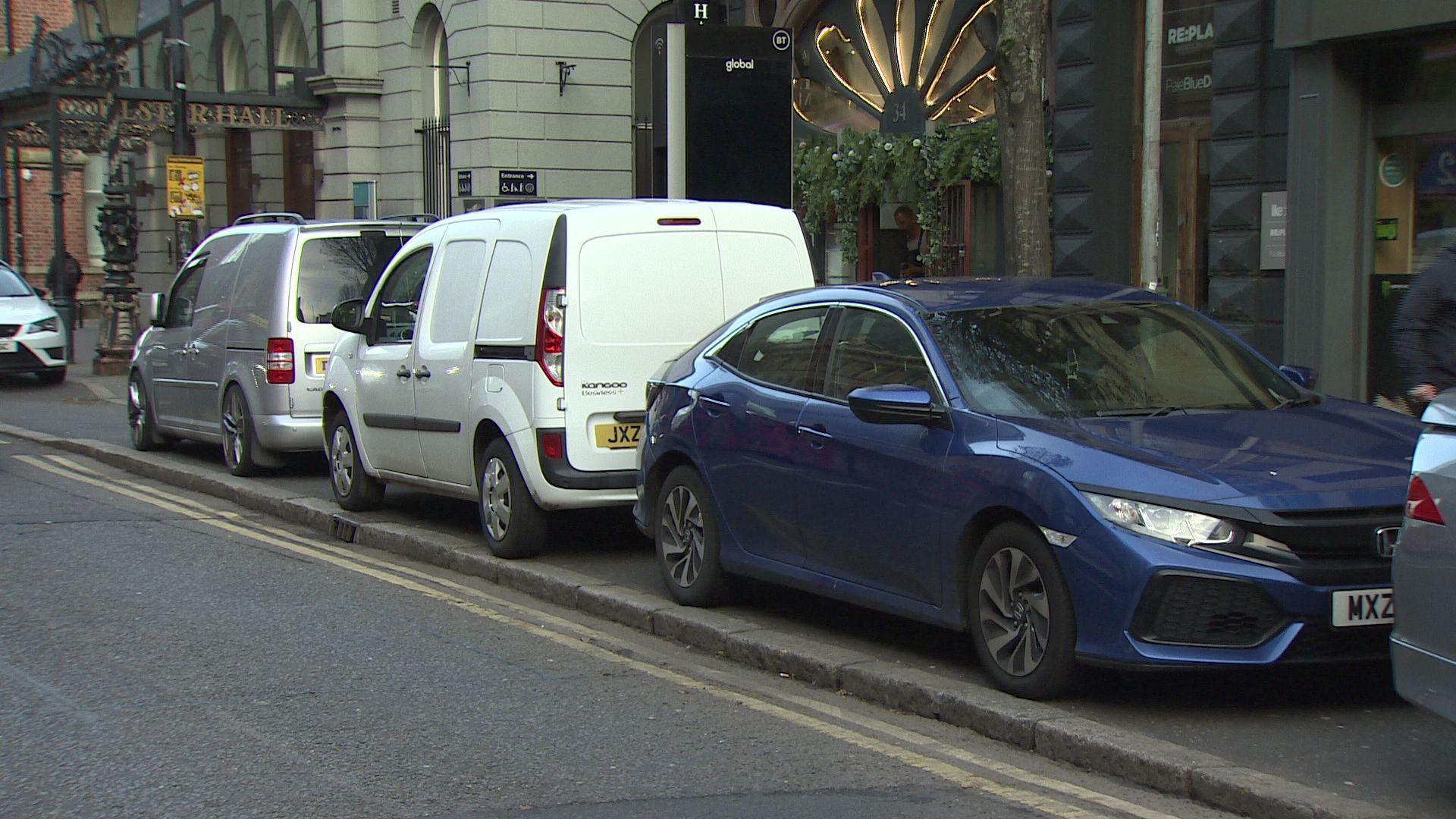
Vehicles parked on the pavement on Bedford Street in Belfast city centre
- Published
Pavement parking is being permitted along one of Belfast city centre's busiest streets because of a lapse in legislation.
Rows of vehicles have been mounting a footpath on Bedford Street where parking restrictions are meant to apply.
The renewal of legislation has been delayed due to "Covid and other work pressures", the Department for Infrastructure said.
Business groups and campaigners have urged the Stormont department to resolve the loophole quickly.
Bedford Street is one of the main routes into Belfast city centre, with landmarks including Invest NI's headquarters and the Ulster Hall.
Vehicles have been parking on a footpath that was widened in 2018 as part of a project aimed at improving the area for pedestrians.
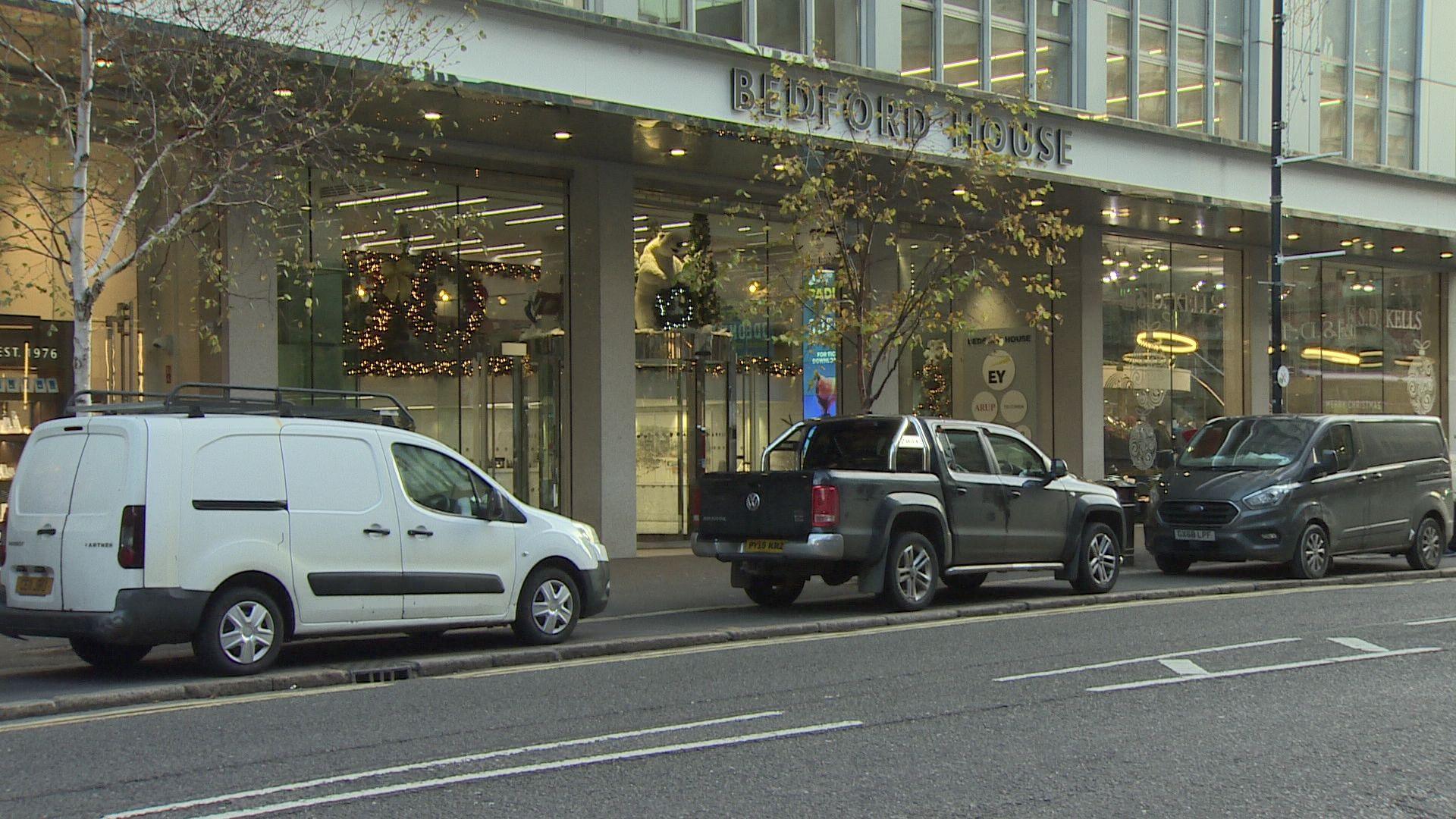
Bedford Street is one of the main routes into Belfast city centre
The Department for Infrastructure said controlled parking zones continue to operate and traffic attendants take enforcement action against vehicles parking on corners.
"However the extended footway/double-yellow lines along Bedford Street was carried out as an experimental order, external which has now lapsed," a spokeswoman said.
"Unfortunately, due to Covid and other work pressures the permanent legislation has not been taken forward.
"However, the department plans to commence the necessary procedures to have this legislation completed."
Ulster Unionist Party (UUP) assembly member Andy Allen, who uses a wheelchair, criticised delays in tackling "inconsiderate" pavement parking.
He said "short-term convenience" for motorists parking caused "long-term inconvenience" for wheelchair users.
"Not just wheelchairs, other members of society, the elderly or infirm, and also those who have young children in prams.
"They may then have to put themselves onto the road in harm's way."
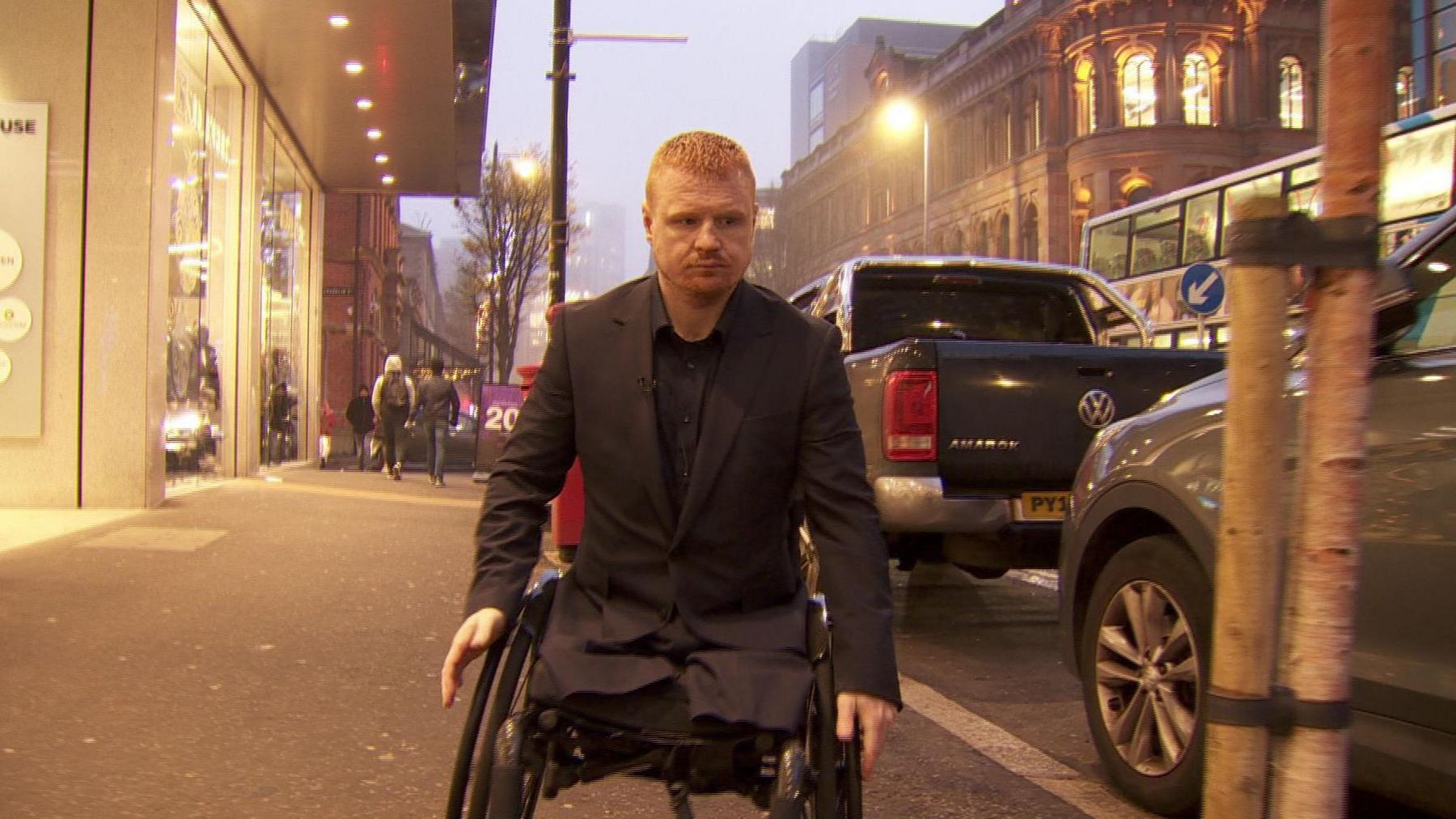
UUP MLA Andy Allen on Bedford Street in Belfast city centre
He added: "The Department for Infrastructure has acknowledged that inconsiderate pavement parking is a widespread and ongoing issue across Northern Ireland.
"While they conducted a consultation, which closed over two years ago, to explore potential next steps, it is clear that tangible action has yet to be taken."
Anne Madden from the walking and cycling charity Sustrans called for a ban on pavement parking with some exceptions.
"We are seeing this kind of encroachment all across Northern Ireland, not just in Belfast," she said.
"The Department for Infrastructure's approach to this is to remind motorists that they should 'think before they park'."
Ms Madden said this was "not enough" and called on the government to "step up" in terms of enforcement.
A group representing businesses in the Bedford Street area also called for the issue to be addressed “as soon as possible”.
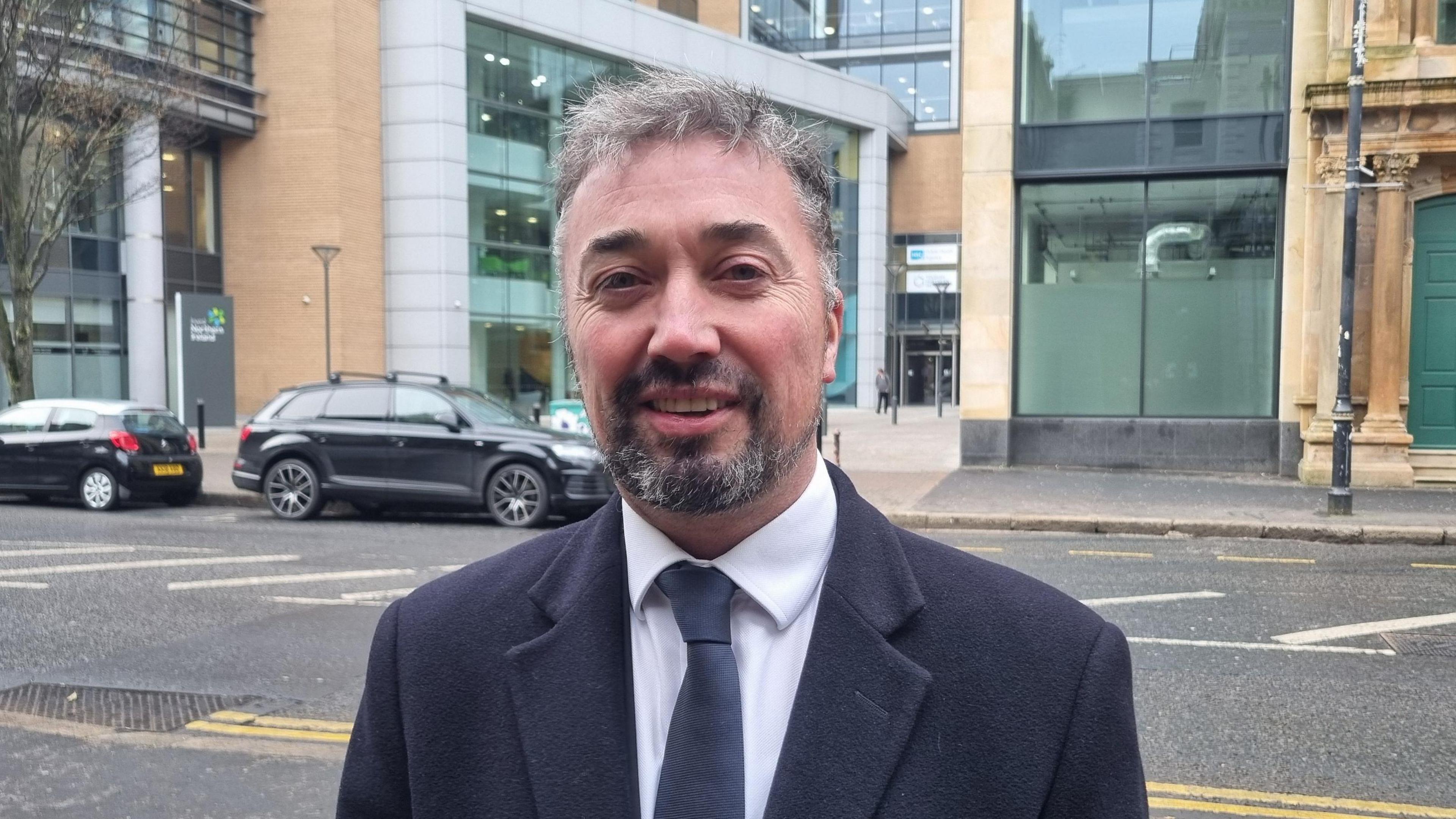
Chris McCracken, managing director of Linen Quarter BID (business improvement district)
Chris McCracken, managing director of Linen Quarter BID (business improvement district), said pavement parking is "anti-social and causes obstruction to pedestrians".
"This issue demonstrates the growing need for the city to embrace and empower people to adopt sustainable and active travel."
Belfast councillor Gary McKeown described the Bedford Street issue as a "free-for-all".
"As a result, we now have a strange limbo situation where pedestrians understandably intend to use the whole pavement, but drivers are using the area as a makeshift car park," the Social Democratic and Labour Party (SDLP) representative said.
What are the rules on pavement parking?
Where parking restrictions are marked on the road, such as yellow lines, those restrictions also apply to the pavement - meaning parking tickets can be issued.
Vehicles parked on a footpath that are causing an obstruction can be dealt with by police, according to the NI Direct website, external.
In 2023, the Department for Infrastructure introduced a ban on pavement parking in some specific locations, external, such as footpaths beside bus or cycle lanes.
The Department for Infrastructure said that "inconsiderate pavement parking is an ongoing issue" across Northern Ireland.
"The department routinely reminds drivers to 'think before you park' and continues to take action against vehicles that are in contravention of legislated parking restrictions, including those that apply to footways," it added.
"Where we cannot act, the police can enforce against vehicles found to be causing an obstruction."
It added that officials were "exploring potential next steps" following a consultation to help with future policies on pavement parking.
Related topics
- Published28 October 2024
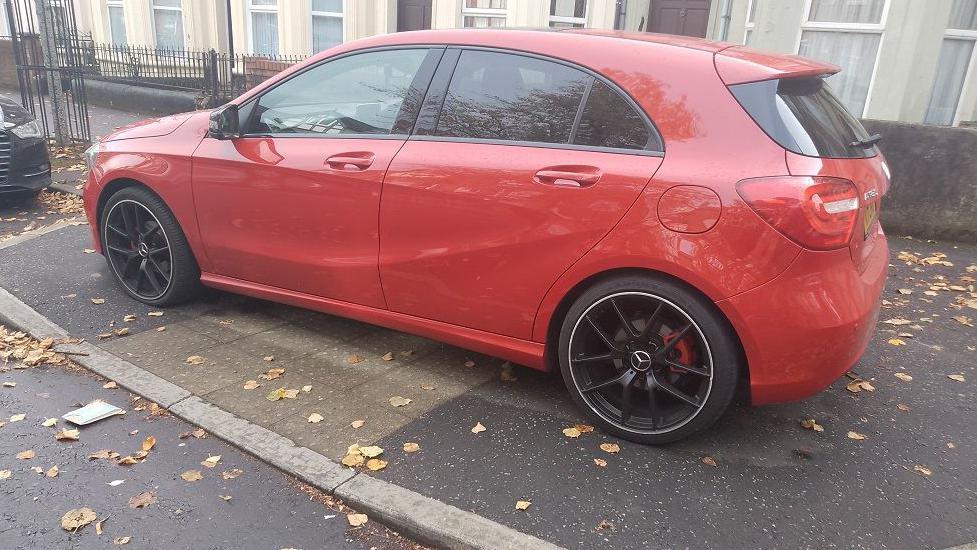
- Published20 August 2024
